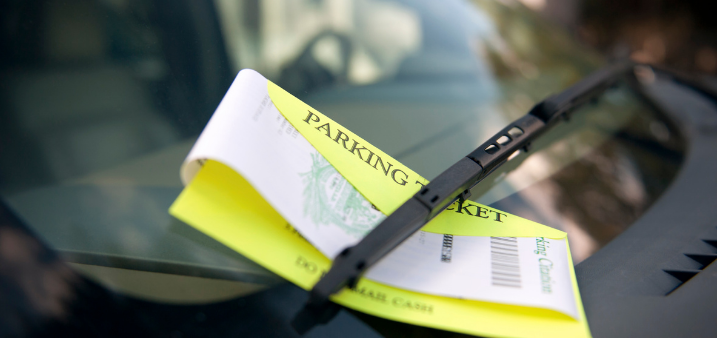This week’s highlights
- Parking ticket fighting app was engaged in unlicensed practice of law, FL Supreme Court finds
- Presidential commission divided on Supreme Court expansion, term limits
- Attorneys across the country are frustrated at pace of return to in-person proceedings
- Law firms struggle to stave off mass attrition
- Surprise spike in legal services inflation in September
Parking ticket fighting app was engaged in unlicensed practice of law, FL Supreme Court finds
“A smartphone app that helped Florida drivers find attorneys to take their traffic disputes to court engaged in the unauthorized practice of law, the Florida Supreme Court ruled Thursday.” (Bloomberg)
An app that connected traffic-ticket defendants with lawyers was engaged in the unlicensed practice of law, the Florida Supreme Court ruled this week, in a 4-3 decision.
The TIKD app allowed users to upload details of their infringement and pay TIKD a flat rate to connect them to an attorney who would then provide a defense, after receiving a flat fee.
The Court found that “As nonlawyers, TIKD simply lacks the skill or training to ensure the quality of the legal services provided to the public through the licensed attorneys it contracts with.”
Presidential commission divided on Supreme Court expansion, term limits
“The 36-member commission concluded that Congress has broad power to expand or shrink the size of the Supreme Court, but “commissioners are divided on whether court expansion would be wise,” according to one of the commission’s draft documents.” (ABA Journal)
A presidential commission established by President Biden to study proposals for changes to the U.S. Supreme Court is divided on the whether the court should be expanded or whether justices should face term limits.
The commission members agreed that it was possible for Congress to expand the court, but were divided on whether such action would be perceived as purely political. On the question of term limits, there was disagreement as to whether mandatory retirement would be constitutional.
Attorneys across the country are frustrated at pace of return to in-person proceedings
“Nationwide, attorneys are pushing back as some court systems that transitioned to virtual proceedings at the start of the pandemic are beginning to mandate a return to in-person appearances—and with varying safety protocols in place.” (The Recorder)
The Recorder is reporting on widespread dissatisfaction among attorneys as more courts seek a return to in-person proceedings. Unlike California (which has taken steps to continue remote proceedings until at least 2023), most other states are again requiring in-person attendance.
One frustrated law student tweeted: ““Such a shame. Pandemic aside, virtual court is so helpful for clients with transportation issues, childcare responsibility, etc. I’m doing a clinic at my law school and it was initially set to be in person, but the majority of our clients preferred virtual, so we switched to Zoom.”
Law firms struggle to stave off mass attrition
“A so-called Great Attrition this year has seen more than 15 million U.S. employees quit their jobs since April, with surveys indicating the movement spans sectors and countries, and that around 40% of employees are at least somewhat likely to quit their jobs in the next three to six months.” (National Law Journal)
The National Law Journal is reporting that analysts believe “the level of workplace turnover is shaping the legal industry.” One expert goes as far as saying “the level of discontent and disconnectedness driving this change is almost unmanageable.”
The top reasons cited for quitting are: not feeling valued by their employer or manager, and not feeling a sense of belonging at work. There’s detailed analysis of the situation in this week’s National Law Journal.
Surprise spike in legal services inflation in September
“U.S. inflation accelerated last month and remained at its highest rate in over a decade, with price increases from pandemic-related labor and materials shortages rippling through the economy.” (Wall Street Journal)
After six months of stagnation, legal services prices rose sharply last month. Average prices for typical consumer legal services rose by 1.8 percent in September vs. August. Prior to last month, prices had not increased at all for six months.
Corporate legal prices, measured by the producer price index (which tracks prices paid by businesses for products and services), found a 0.5 percent increase in the amounts paid for legal services in September vs. August.
Author
Richard is Vice President of Sales and Marketing at InfoTrack. He has worked with law firms for more than a decade to advise on adapting to regulatory and technological change. He writes about the courts, civil procedure, and developing trends that may affect law firm operations.
View all posts





